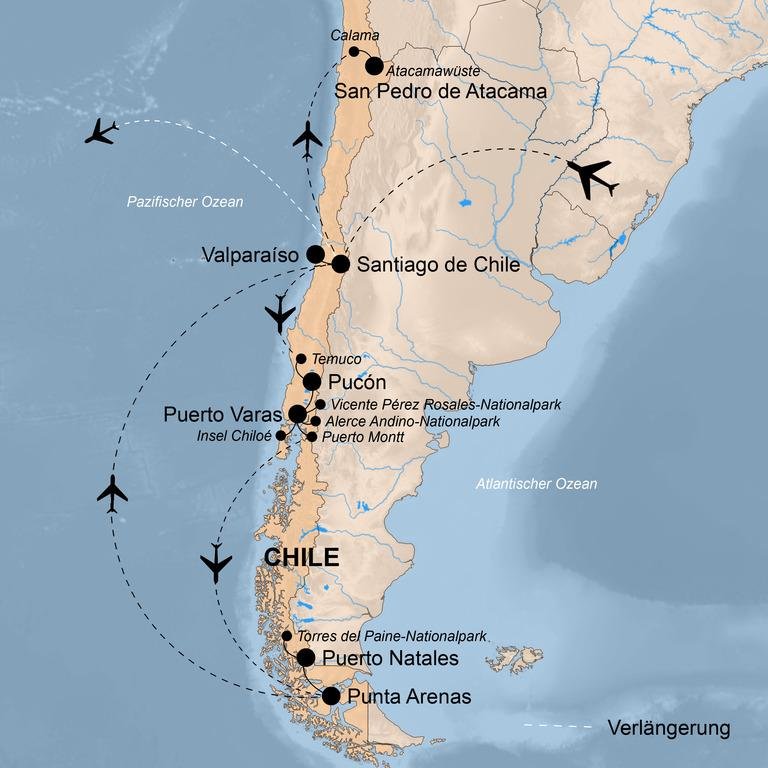When planning a trip to the breathtaking landscapes of Chile, it’s easy to get lost in dreams of sun-soaked beaches, majestic mountains, and vibrant cities.However, not all seasons are created equal when it comes to experiencing the best that this diverse country has to offer. understanding the unwelcome challenges posed by certain times of the year can make a critically important difference in your travel experience. From unpredictable weather patterns in Patagonia to the bustling crowds during local festivals, knowing the worst times to visit can help you better navigate your plans and expectations. This guide aims to provide you with insights into the seasonal pitfalls that could impact your journey, ensuring that you maximize your time in this remarkable land while minimizing any potential frustrations. So,whether you’re drawn to the Atacama Desert’s arid expanse or the lush scenery of the Lake District,let’s explore how to make informed decisions for a truly memorable Chilean adventure.
Understanding the Challenges of Winter in Chile
Winter in Chile brings with it a myriad of challenges that can transform a visit from a leisurely escape to an adventure full of hurdles. Weather conditions can vary significantly across the country, creating a patchwork of climatic experiences. in the northern desert, temperatures can drop sharply at night, while the southern regions are often cloaked in rain and snow. Travelers may face issues such as:
- Transport Delays: mudslides and heavy snowfall can disrupt travel plans, especially in Patagonia, where rural roads are vulnerable.
- Accommodation Strains: With ski season in full swing,booking accommodations can be a hectic challenge,particularly in popular towns like Pucón and Valle Nevado.
- health Concerns: The cold weather can exacerbate respiratory illnesses, making it essential for travelers to pack warm clothing and necessary medications.
Additionally,the days are considerably shorter,limiting exploration time and the enjoyment of Chile’s breathtaking landscapes.A speedy glance at the average daylight hours in winter reveals how enhanced planning can ensure a more enjoyable visit:
| Location | average Daylight hours |
|---|---|
| Santiago | 10 hours |
| Valparaíso | 9.5 hours |
| puerto Natales | 8 hours |
To adapt to these challenges, planning is key. Travelers should consider flexible itineraries and have contingency plans in place. Moreover, embracing the winter months means enjoying unique experiences such as skiing in the andes or indulging in cozy evenings at Chilean lodges with local culinary delights. While it may not be the most convenient time to visit, a little foresight can definitely help make the experience rewarding on platforms like gezify, where resources and tips on navigating these winter challenges can be easily found.
Navigating the Off-Peak Seasons for a Better experience
Traveling during the off-peak seasons in Chile can provide a much more enriching experience, allowing visitors to immerse themselves in the culture without the overwhelming crowds. By choosing to visit during these quieter times, you can not only save money on accommodations and activities but also have the opportunity to connect with locals in a more meaningful way. Here’s what you can expect when navigating the off-peak seasons:
- Lower Prices: Accommodations, tours, and flights often see reduced rates, making it economically friendly to explore.
- Fewer Crowds: Major tourist attractions are less congested, allowing for a more enjoyable experience while sightseeing.
- Local Interactions: With fewer travelers around, you can foster more authentic connections with local communities and perhaps even enjoy special festivals or events that are less advertised.
- Unique Natural Experiences: Visiting in the offseason may provide a chance to witness stunning landscapes that are frequently enough missed,such as blooming wildflowers in spring or vibrant autumn colors.
As you plan your visit, it’s essential to understand the seasonal variations that affect different regions of Chile. Below is a simple table to illustrate the ideal off-peak months for different destinations:
| destination | Best Off-Peak Months |
|---|---|
| Atacama Desert | April to September |
| Patagonia | May to September |
| Santiago | June to September |
| Chiloé Island | March to May |
With a little research and versatility, you can navigate the best times to explore the rich offerings of Chile without the hustle and bustle of high season travelers. Embrace the unexpected joys of a quieter journey, and remember, each experience enhances the tapestry of your travels, making them more memorable.
while Chile’s diverse landscapes and rich culture make it a captivating destination year-round, being aware of the less favorable seasons can enhance your travel experience. Understanding the challenges posed by harsh weather or tourist crowds will empower you to make informed decisions about your visit. Whether you’re drawn by the allure of Patagonia or the charm of Santiago,choosing the right time to plan your trip can ensure you savor the best that Chile has to offer. Happy travels, and may your adventures be memorable, no matter when you choose to explore this stunning country!
